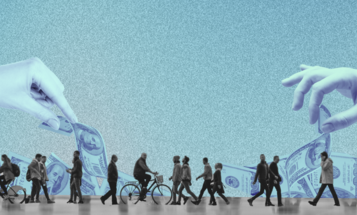
Skimpy Minimum Wage Still Not Low Enough for Fast Food Employers

UrbanDictionary.com defines a McJob as “any menial, low-paying, unskilled, dead-end job, including (but not limited to) those in the fast food industry, which requires zero creative or intellectual involvement, and whose sole motivation is a paycheck (i.e., no one works a McJob because they like it or care about the work). . . The term's allusion to mass-produced fast food implies both the mechanical, unfulfilling nature of the work, and the disposable, interchangeable manner in which the company treats its employees.”
In other words, these jobs offer as little in pay, benefits, training, job security and safety protections as the law allows. It’s a shamefully low bar – except that it’s apparently not low enough for some fast food employers. A survey of 500 fast food workers in New York City commissioned by worker organization Fast Food Forward reportedly shows that the vast majority of employees in the city’s fast food industry say they have, in one way or another, been cheated out of wages owed.
While the report is not yet available online, Josh Eidelson writes today in the Nation that
The Fast Food Forward report identifies several types of violations as prevalent in the city’s fast food industry: employees working, without pay, before or after their shift; employees working overtime without being paid time-and-a-half; employees working during their breaks or not receiving breaks; and delivery employees not being reimbursed for expenses like gasoline or safety equipment.
An earlier study by the National Employment Law Project found that an estimated 586,322 workers in New York City’s low-wage industries (including, but not limited to fast food) suffered some type of employment or labor law violation in the course of a week.
Fast food workers have organized a series of one-day strikes in cities across the country, calling for better pay and union representation. But the new findings reinforce the fact that they need all the help they can get.
That’s why it’s particularly encouraging to learn that New York Attorney General Eric Schneiderman is investigating wage violations in the fast food industry, according to the New York Times. [Full disclosure: my husband is an employee of the New York Attorney General’s office, although he has not been involved with this investigation.] Should Schneiderman’s office have sufficient evidence to bring a case, prosecutions will be aided by New York’s relatively new Wage Theft Prevention Act, which increases penalties for cheating workers and prohibits retaliation against employees who complain.
Legal employment conditions – a minimum wage of just $7.25 an hour, with no requirements that employers provide health coverage, job security or even (until new legislation goes into effect) paid sick days – are abysmal enough. Lower standards are unacceptable.




